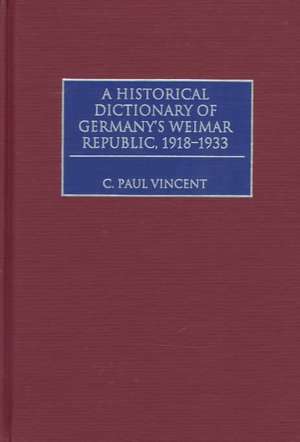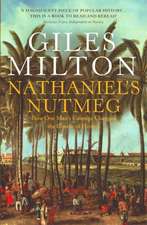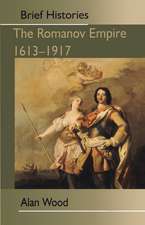A Historical Dictionary of Germany's Weimar Republic, 1918-1933
Autor C. Paul Vincenten Limba Engleză Hardback – 13 aug 1997 – vârsta până la 17 ani
Preț: 309.59 lei
Preț vechi: 619.17 lei
-50% Nou
Puncte Express: 464
Preț estimativ în valută:
59.25€ • 60.67$ • 49.28£
59.25€ • 60.67$ • 49.28£
Carte tipărită la comandă
Livrare economică 19 martie-02 aprilie
Preluare comenzi: 021 569.72.76
Specificații
ISBN-13: 9780313273766
ISBN-10: 0313273766
Pagini: 648
Dimensiuni: 156 x 235 x 39 mm
Greutate: 1.05 kg
Editura: Bloomsbury Publishing
Colecția Greenwood
Locul publicării:New York, United States
ISBN-10: 0313273766
Pagini: 648
Dimensiuni: 156 x 235 x 39 mm
Greutate: 1.05 kg
Editura: Bloomsbury Publishing
Colecția Greenwood
Locul publicării:New York, United States
Notă biografică
C. Paul Vincent received his PhD at the University of Colorado. While serving as a librarian, he has taught history at Franklin and Marshall College and Keene State College. He was library director at Keene from 1985 to 1994. He is the author of The Politics of Hunger: The Allied Blockade of Germany 1915-1919 (1985).
Cuprins
IntroductionThe DictionaryGlossaryBibliographyIndex
Recenzii
This reviewer is impressed with its comprehensiveness as well as the conciseness and clarity of the entries. . . . An especially full index shows all the locations where the subject is mentioned.
Paul Vincent has provided us with an invaluable reference, one which should be seen as essential for anyone who is interested in the Weimer Republic. His dictionary is much more than a compendium of information about Weimar. Each of the entries is a thorough introduction to its subject and is carefully cross-referenced to related articles in the book. The source references at the end of each entry are invariably well chosen. The dictionary offers a ruly panoramic view of Weimar with articles on everything from party politics to popular entertainment, from Adolf Hitler to Marlene Dietrich. The breadth of reference is never at the expense of careful research; the scholarly craftsmanship and authority are evident throughout, as is balance..There is also a refreshingly straighforward character to the writing Vincent does not shy away from controversy, nor does he avoid coming to his won conclusions when it seems appropriate to do so.
The dictionary captures the unsettled nature of the times by explaining competing ideologies, describing intellectual threads, charting the activities of politicians, and analyzing the impact of institutions. Artists and business leaders figure as prominently as politicians. The ample articles conclude with reference to items in the extensive bibliography. The thoroughness of the index matches the quality of the scholarship evident in the articles. . . . European history collections will be incomplete without this informative, excellent new reference source.
Paul Vincent has provided us with an invaluable reference, one which should be seen as essential for anyone who is interested in the Weimer Republic. His dictionary is much more than a compendium of information about Weimar. Each of the entries is a thorough introduction to its subject and is carefully cross-referenced to related articles in the book. The source references at the end of each entry are invariably well chosen. The dictionary offers a ruly panoramic view of Weimar with articles on everything from party politics to popular entertainment, from Adolf Hitler to Marlene Dietrich. The breadth of reference is never at the expense of careful research; the scholarly craftsmanship and authority are evident throughout, as is balance..There is also a refreshingly straighforward character to the writing Vincent does not shy away from controversy, nor does he avoid coming to his won conclusions when it seems appropriate to do so.
The dictionary captures the unsettled nature of the times by explaining competing ideologies, describing intellectual threads, charting the activities of politicians, and analyzing the impact of institutions. Artists and business leaders figure as prominently as politicians. The ample articles conclude with reference to items in the extensive bibliography. The thoroughness of the index matches the quality of the scholarship evident in the articles. . . . European history collections will be incomplete without this informative, excellent new reference source.












